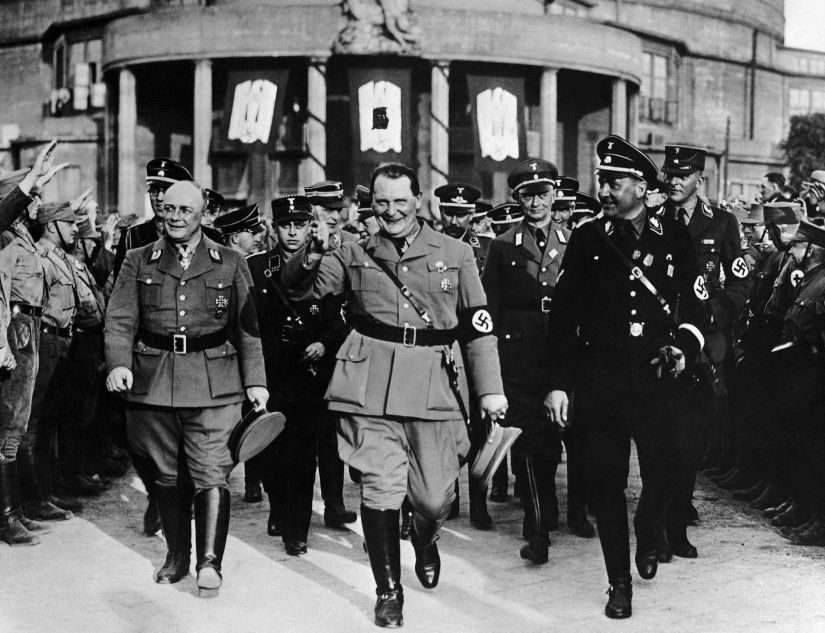Hermann Göring - "Nazi no.2", the creator of the Luftwaffe, Gestapo and concentration camps, the successor to the Fuehrer - was the only one in Hitler's inner circle who lived to see the Nuremberg Trials (not counting Rudolf Hess, who left the Reich in 1941). Anti-fascist propaganda portrayed him as a fat, ornery taskmaster. But even in the dock, Göring proved himself to be exceptionally intelligent; he attempted to control the audience, and his interrogation made the prosecution really nervous. Peter Romanov talks about why such a person deliberately followed Hitler and became one of the main Nazi criminals.
Star on the Wings
We are not encouraged to talk much about criminals like Hermann Göring. He played a major role in the Anschluss of Austria and recreated the Luftwaffe (air force), which made a vital contribution to the first victories of Nazi Germany. Back in 1933, after Göring became the head of the newly-created Reich Ministry for Aviation, he began a secret revival of the Air Force that had been prohibited to the Germans under the Versailles Treaty.
After the Polish campaign was successfully completed with the help of the Luftwaffe, Göring was awarded a Knightly Order of the Iron Cross. After the defeat of France, he received the Grand Cross of the Iron Cross (he was the only one who had the award in the Third Reich). The title of Reichsmarshal of the Greater German Reich (the German equivalent of Generalissimo) was created especially for him. On 29 June 1941, Hermann Göring was officially appointed Hitler's political successor. It would be all fine taking account of the Junkers and Messerschmitts in the Soviet sky as well as the grief that they brought on their wings to the Russian people.
Nevertheless, I will venture to say a couple of words about this person, since this is the only way to explain how the ace pilot fell into a tailspin and crashed in the black hole of Nazism.
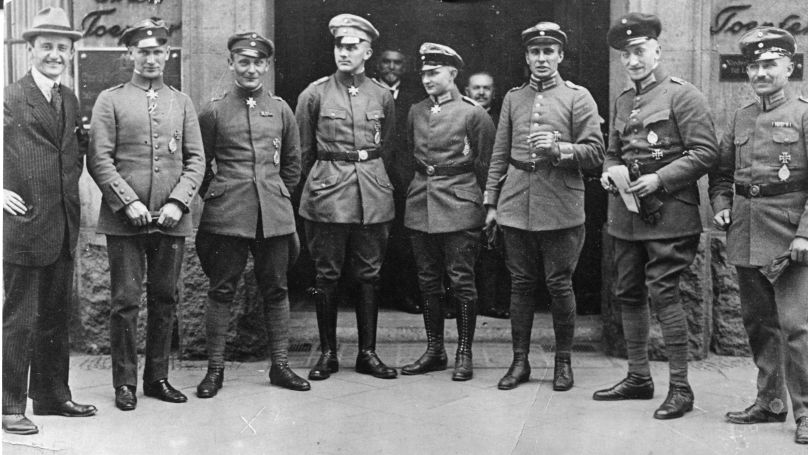
In the First World War, Göring became one of the heroes of this universal slaughter. He himself shot down 22 aircraft, and then at the very end of the war, when the Allies already had undeniable superiority in the air, he successfully led a squadron named after Manfred von Richthofen, the legendary "Red Baron".
Nonetheless, there is one important detail: many Germans called the "red baron" a "murderer" (he shot even survivors who made emergency landings), while Göring`s reputation was completely different at that time. He was born into an aristocratic family (his father was a governor-general and a personal friend of Bismarck). From childhood he had been surrounded by tin soldiers; he got a decent military education, and dreamed of being a soldier. During the First World War, he showed an emphatically noble attitude towards the enemy. He was the opposite not only of the "red baron", but also the man he would later become.
Following Hitler`s Descent Into the Black Hole
Like many military men in Germany, Göring was disappointed with the “unfair” defeat in the war, and that's where his descent into the black hole of National Socialism began. German soldiers believed that it were not them who’d lost the war, but the politicians in the rear. They were outraged by the harsh conditions of the Versailles Treaty. All this initially gave rise to a desire for revenge. And, of course, Göring was really impressed by his meeting with Adolf Hitler, who could skilfully play on this prevalent feeling of national grievance.
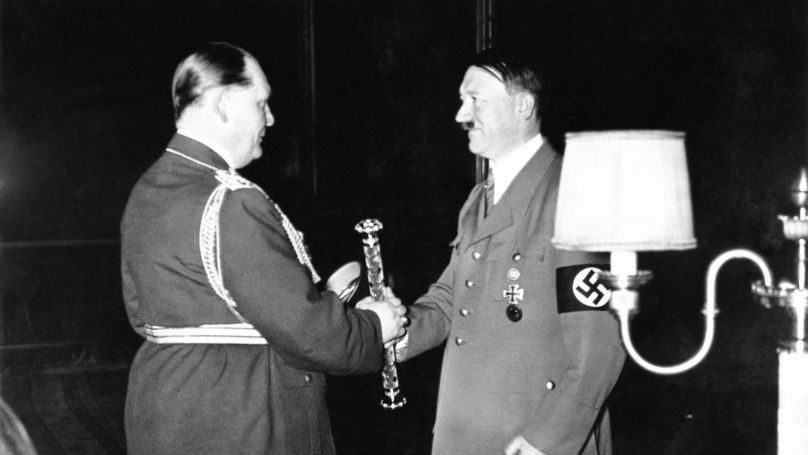
Like many others, once he’d heard Hitler (the Fuhrer was undoubtedly charismatic), Göring followed him, believing in him as in a visionary and an indomitable leader.
For Hitler, the emotional and decisive Göring was a lucky find. There were many former soldiers among the admirers of the front-line soldier Hitler, but a generally recognised national hero was another matter. Furthermore, Göring really possessed considerable organisational skills, although he was lazy by nature. His swings from a burst of energy to a breakdown, passion for bragging and propensity for making impossible promises accompanied him all his life.
Francois Kersaudy, professor at the Sorbonne and researcher of Göring 's biography wrote: "Being in the Fuhrer`s shadow, Hermann Göring played a variety of roles: the leader of strike teams, amateurish putschist, itinerant Nazi party activist, (...) puffy dandy, resounding orator, corrupt deputy, conqueror of the presidency of the Reichstag, (...) complete schemer, brilliant minister of aviation, rich parvenu, smart diplomat, excellent hunter, carpet strategist, amateur economist, ecologist ahead of his time, passionate art collector, official successor to Hitler, and his partner in crimes. He was a very sentimental person who did not hesitate to remove everyone who stood in his way; an anti-Semite in words, who ruled the imperial administration for Jewish emigration; a boastful battler who made peacekeeping efforts; a hyperactive person sticking his nose everywhere and completely weak-willed at the same time (...) Göring 's nature consisted of many contradictory qualities”.
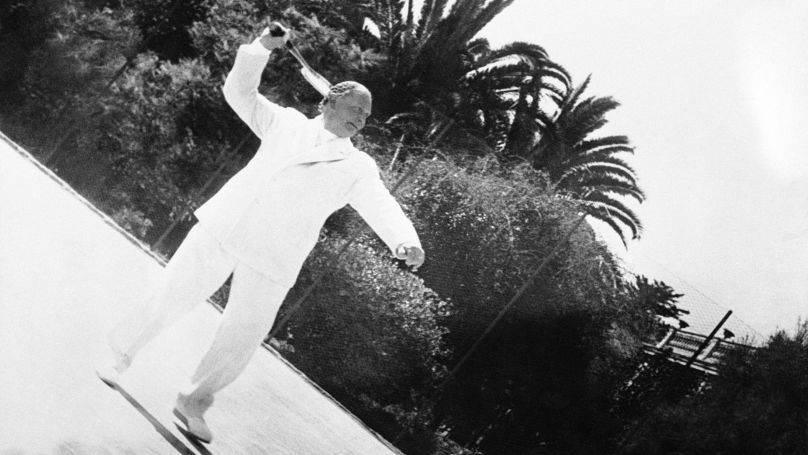
In general, the description is accurate; however, it needs to be corrected in several places. For example, it seems hardly appropriate to laud a "collector of works of art" who shamelessly robbed the best museums of invaded countries to compile his collection.
The Fuhrer`s Favourite
Usually, any biography of Göring begins with a list of numerous positions that he held in the Reich. In fact, he received positions and regalia gradually, and the frequent change of areas in which Hitler used Göring may indicate that he did not always successfully attend to his responsibilities. Keeping in mind the role played by Göring in the formation of the Reich, Hitler, unwilling to let his pride suffer, would entrusted him with a new position, while formally leaving to him in the old position as well. In reality, however, someone else was a "driving force". As a result, his impressive list of positions, titles and regalia was assembled.
Hitler did not forget that in 1923, it was Göring who had become the supreme leader of the SA, the storm troopers of the NSDAP, and turned them into a powerful paramilitary force. During the so-called "Beer Hall Putsch" of 1923 in Munich (an attempt to seize power in Bavaria), Göring walked alongside Hitler and was seriously wounded (his endocrine system was disrupted - as a result, Göring put on a lot of weight, making him a favourite character of cartoonists). The wounded airman was saved by the owner of a neighbouring home, a Jew named Robert Ballin. Later, Göring freed his saviour and his wife from the concentration camp.
Hitler knew how hard Göring had suffered from his injury, which rendered him disabled for a long time. He began to take morphine to ease the pain, and then got hooked on it; he received treatment from foreign psychiatrists. After the Fuhrer confirmed once again that Hermann was no.2 Nazi in the party and that he was his successor, Göring calmed down. It was during the party’s formative stage, as well as while seizing of power in Germany and during the beginning of the war, that Hitler highly valued the discovery he had made in Göring.
Besides his "aviation positions", Göring became the SA Obergruppenfuehrer, Honorary SS Obergruppenfuehrer, General of the Infantry and General of the Land Police, and head of the Reichstag. Additionally, he was responsible for the implementation of the country’s four-year economic plan.
Opinions differ regarding the last assignment. On the one hand, in July 1937, when the huge state holding Hermann Göring Werke was created, numerous factories confiscated from Jews came under its jurisdiction, later to be joined by factories in the occupied territories. In reality, however, this huge conglomerate, like the entire German wartime economy, was still managed by other people, principally another Hitler favourite - the architect Albert Speer.
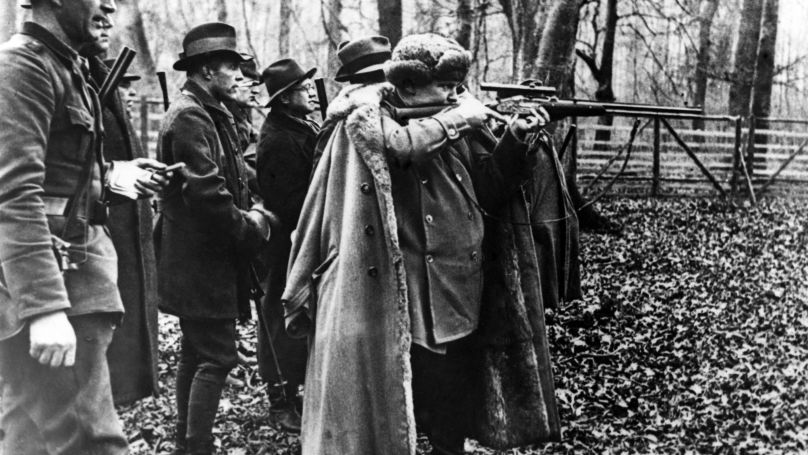
Nonetheless, Göring was appointed the "Imperial Jaeger of Germany". Being an avid hunter, Göring was really enthusiastic about this position. All the other positions were mostly formal for him: as the second-highest-ranking person in the state, he only signed the papers that had been laid on his table.
From the Burning of the Reichstag to the Holocaust
These were scary signatures. On 30 July 1941, Göring signed a document presented to him by Reinhard Heydrich on the "final solution" of the Jewish issue that implied the murder of almost 20 million people. Göring was also present at the meeting where Operation Barbarossa was approved: the invasion of the USSR.
According to some memoirs, however, he considered the war against the USSR as well as "the final solution of the Jewish issue" to be a mistake. As Speer recalls, back in 1942, Göring told him: "We will be grateful if Germany maintains its 1933 borders after this war." Regarding the document of Heydrich, he testified in Nuremberg that the translation is incorrect, the "complete solution" meant emigration only. At meetings with Hitler, if he harboured these concerns, he hardly ever expressed them. It wasn’t that he feared arguing with the leader, as he believed in his righteousness, and in divine providence. That`s why he followed Fuhrer's decisions.
There are a number of criminal orders for which Göring is directly responsible. As a general of the police and infantry, he allowed the police to use their weapons freely to suppress the opposition in his "decree on shooting", and it was he who sent 30,000 storm troopers to help the police, thus giving them official status. There are many corpses attributable to this decree. It was he who created the Gestapo in 1933. There is no need to explain what kind of institution it was.
The role of Göring in the burning of the Reichstag is still not entirely clear. At the Nuremberg Trials, he denied his involvement in those events, and despite the evidence available, the prosecutors could not fully prove it. It's not a surprise, since the Nazis thoroughly cleaned out the truth about that dark story. However, the confirmed accusations against Göring were already more than enough. He deserved his place in the dock.
Loyal "Traitor"
Hitler's discontent with Göring grew as the war was being lost. Many of the initial promises of the Reichsmarschall were impossible to fulfil. However, Hitler truly believed in his luck, since he agreed with Göring that the Luftwaffe could provide Paulus's army, surrounded at Stalingrad, with everything it needed. Later Göring promised the Fuhrer that the German Air Force would not allow the enemy to reach German soil. Doubts were growing; the Fuhrer was repeatedly furious after hearing about new allied raids. Göring was gradually losing his position at the pinnacle of power. By the end of the war, Bormann, Himmler, and even Goebbels were vying to claim “Nazi No. 2” status.
Nevertheless, even after Göring had gone dark, he was formally considered Hitler’s successor. Only on 23 April 1945 did Hitler furiously strip his former favourite of all his titles and positions. The reason was Göring's proposal to take over the functions of head of government (Reichsfuehrer Hitler was both prime minister and head of state). According to some researchers, this was the last desperate attempt to negotiate peace with the Americans and the British. Hitler's reaction was immediate. Göring not only lost all his titles and regalia, he was even expelled from the party, which he had once created together with the Fuhrer. Moreover, Göring was taken into custody by the SS. There was a rumour that Hitler had ordered to have Göring’s family murdered, including his little daughter.
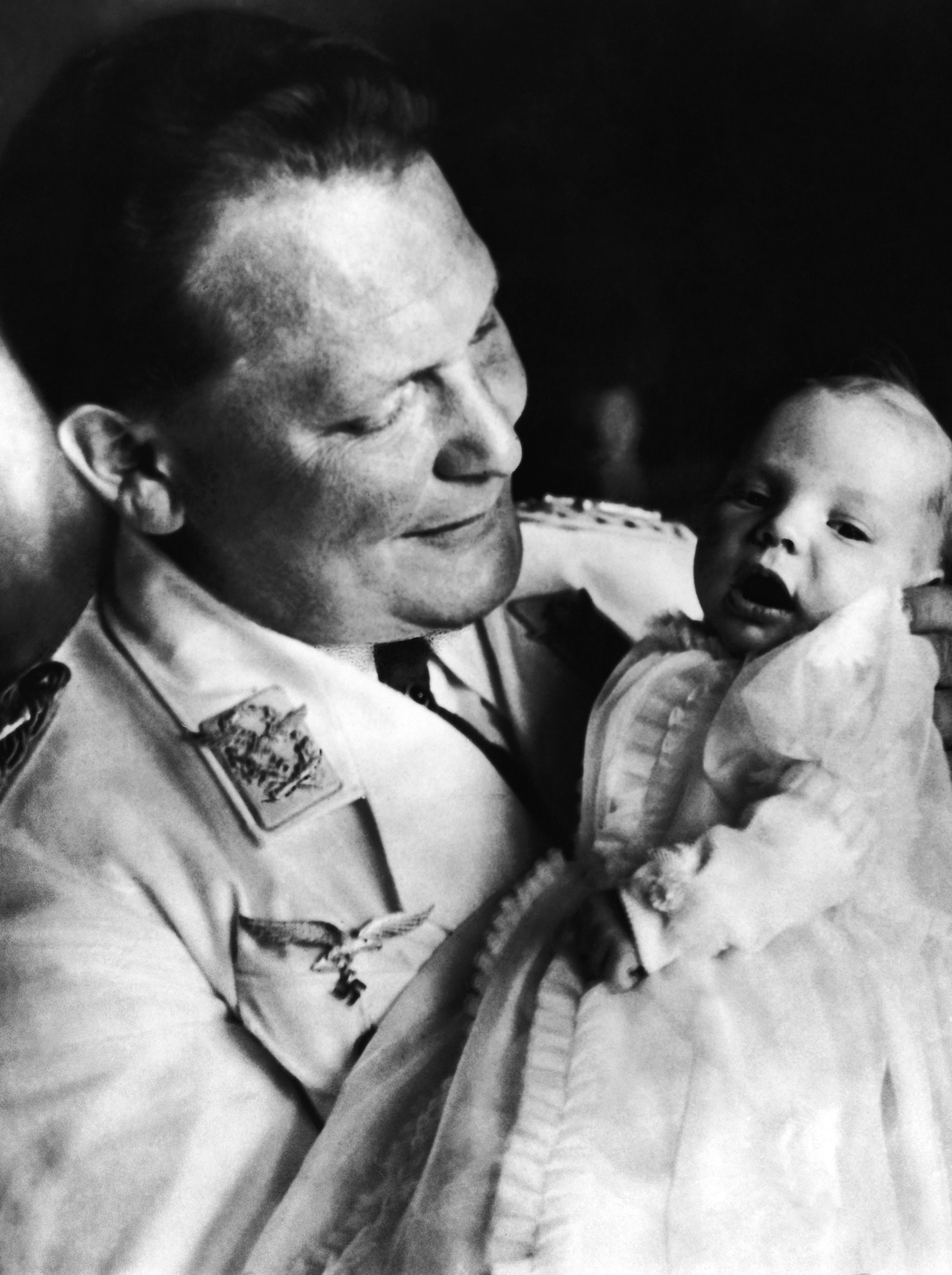
However, his guards were soon replaced by people from the Luftwaffe, who released their former boss, and Göring immediately surrendered to the Americans with his family.
It doesn’t matter if Hermann Göring considered the "trial of the victors over the vanquished" in Nuremberg unauthorised, or did not plead guilty of crimes against humanity – it couldn`t change anything. Long before the trial, he called himself a murderer. In his book “Germany reborn”, published in 1934, he said: "…every bullet fired from the barrel of a police pistol was my bullet. If you call that murder, then I am the murderer".
Peter Romanov
